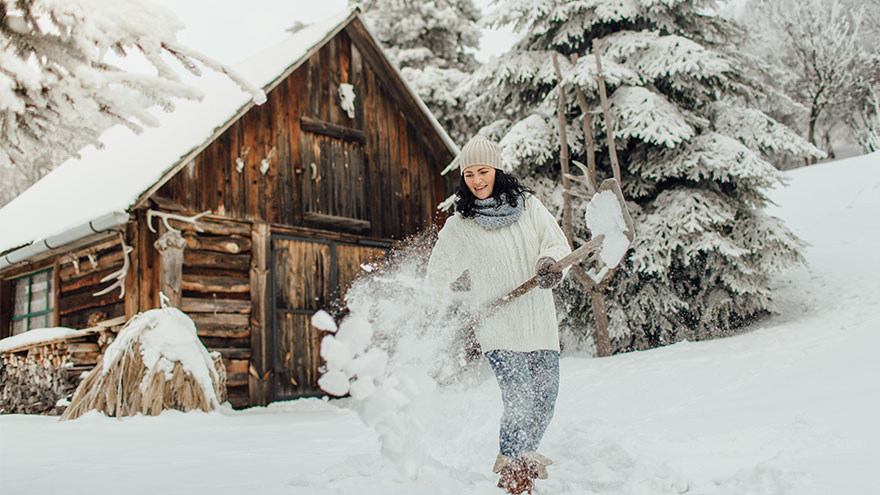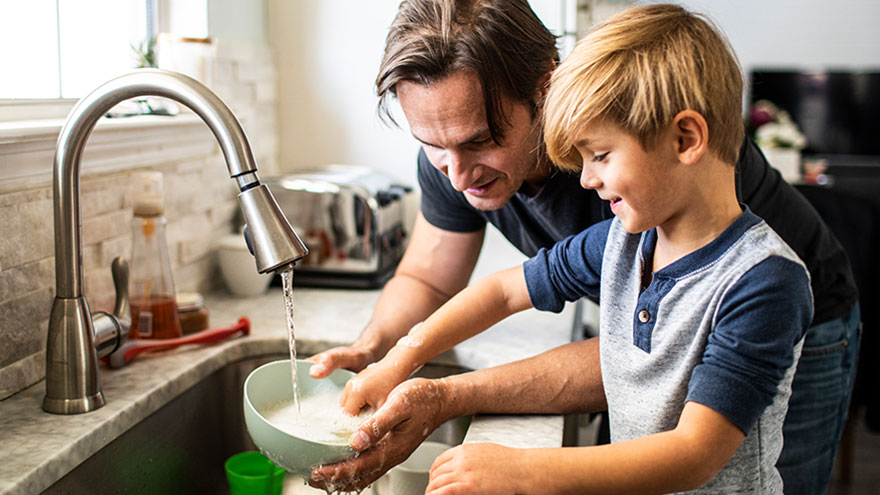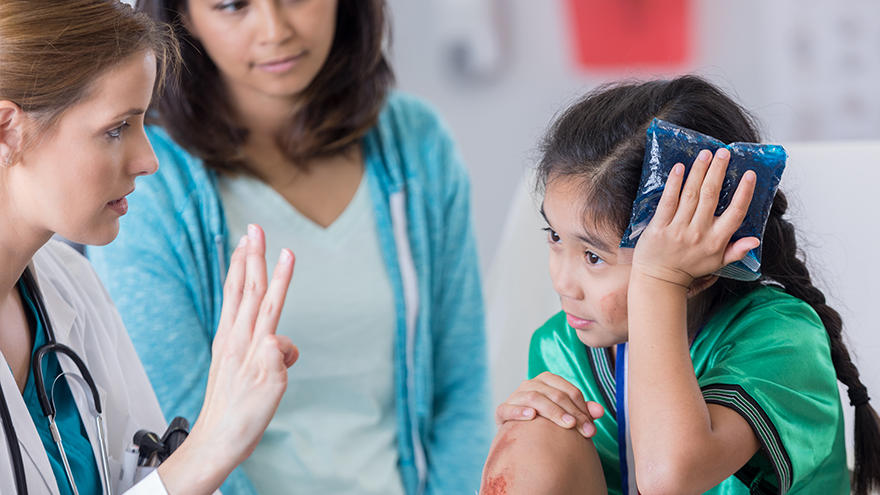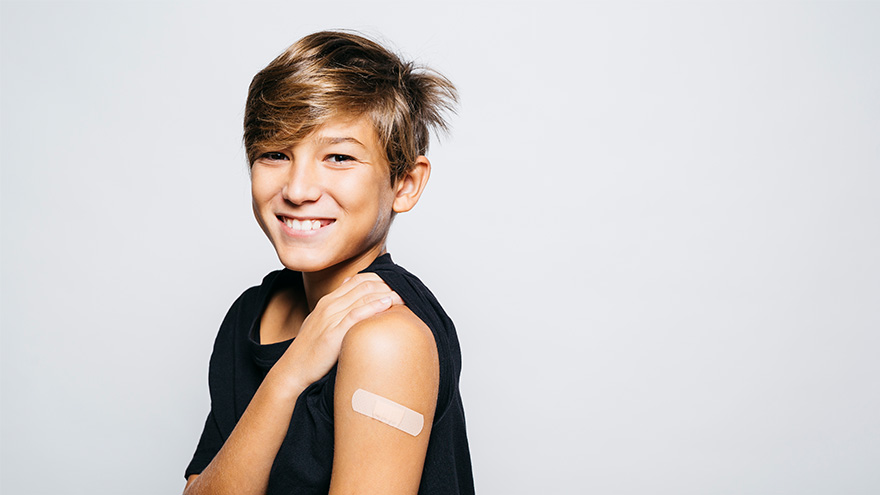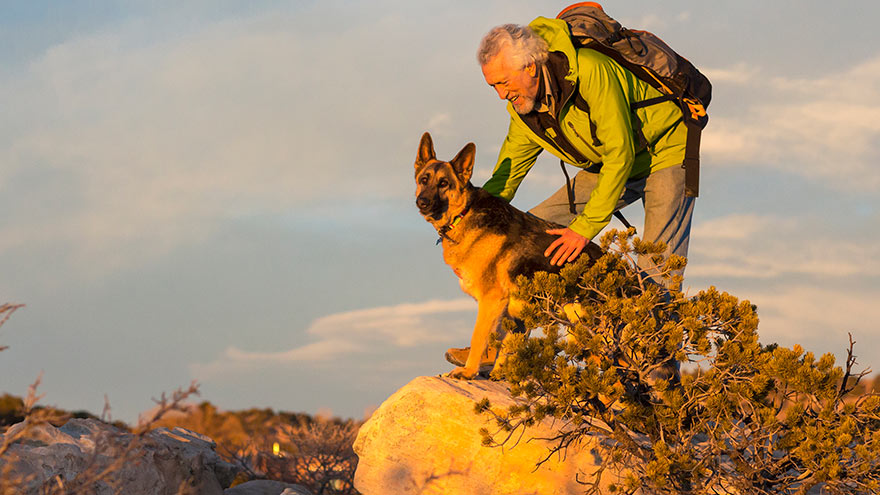Buscar
-
Celebrating Resilience: Raquel's Remarkable Journey Through Breast Cancer Treatment
Raquel was 33 when she was diagnosed with breast cancer. It was April 2023, when she found a lump in her breast and was referred to the William N. Pennington Cancer Institute. After comprehensive imaging, she was diagnosed with invasive lobular carcinoma, which is a type of breast cancer that begins in the milk-producing glands of the breast. Between June 2023 and January 2024, she received a total mastectomy, chemotherapy and radiation at Renown Health. “Breast cancer is uncommon in women under 40, but any woman with a mass or lump in her breast should have an exam by a physician and imaging at any age,” said Dr. Lee Schwartzberg. In fact, according to the Centers for Disease Control and Prevention (CDC), only 9% of all new cases of breast cancer in the U.S. are found in women younger than 45. “It was a pretty scary diagnosis, but I’ve been led by great people through the process,” she said. “They were so helpful and there for me throughout the chemo and radiation.” Raquel's journey through breast cancer treatment at the William N. Pennington Cancer Institute was marked by the exceptional care provided by the Renown Health team, including nurses, nurse navigators, therapists, support teams and providers. Among the dedicated professionals, Dr. Michelle Chu and Dr. Lee Schwartzberg played pivotal roles in Raquel's diagnosis and subsequent treatment plan. Their expertise, compassion and commitment to patient care left an indelible impact on Raquel's experience. Their thorough examination and comprehensive approach ensured that Racquel received the best possible care for her invasive lobular carcinoma. In addition to the care provided at Renown, Raquel greatly benefitted from being connected with a mentor by Dr. Chu. This mentor, Kayla, had undergone a similar diagnosis and treatment plan, and at the same age Raquel. They texted and called each other throughout Raquel’s treatment, providing additional support through a challenging time. As of January 2024, Raquel is done with her treatment and continues to see her care team for follow-up appointments. “I’m through the worst and ready to rebuild my life,” Raquel said. To help celebrate this milestone, Nevada Athletics invited Raquel to receive the game ball at a Nevada Men’s Basketball game. She was joined on the basketball court for this special recognition by her husband, Raul; mother, Arlene; and two daughters, Ryleigh and Rhiannon. Racquel's journey is not only a testament to her resilience but also a tribute to the invaluable contributions of Dr. Chu and Dr. Schwartzberg in guiding her towards triumph over breast cancer.
Read More About Celebrating Resilience: Raquel's Remarkable Journey Through Breast Cancer Treatment
-
Protéjase y proteja a los demás con la vacuna contra la influenza
Flu shots don’t just protect those who get vaccinated; they protect everyone, including your family and the community. As we continue navigating the COVID-19 (coronavirus) pandemic, Renown Health infection prevention expert Whitney Robinson explains how getting your flu shot is vital for staying healthy. 5 Ways to Schedule Your Flu Shot Call Us! 775-982-5000 Urgent Care Appointments Renown Pharmacy Vaccinations Make an Appointment via MyChart Need a Doctor? Find One Now Reasons to get the flu shot Chills, body aches, fever, congestion; getting the flu isn’t fun. But in addition to protecting yourself with a flu shot, you’re helping reduce flu cases and hospitalizations, Whitney said. Flu shots are currently available at pharmacies throughout the Reno area. Whitney says the ideal time to get your flu shot is September through October, but remain relevant throughout the winter months as it only takes two weeks for the antibodies to develop in your body. This timing allows the vaccine to provide the strongest protection during the length of flu season. Who needs a flu shot? Almost everyone. The Centers for Disease Control and Prevention recommends the yearly flu shot for everyone six months of age and older. Equally, they consider it the first and most crucial step in protecting against the flu virus.
Read More About Protect Yourself and Others with the Flu Shot
-
What is Disordered Drinking?
An alcohol problem can affect anyone at any age. Many factors, including job stress, genetics or depression, may contribute to the start of disordered drinking. Drinking alcohol exists on a continuum. For example, if someone feels down in the dumps for some time, it doesn’t mean they are clinically depressed. So if someone goes through a period with above-normal alcohol consumption, it doesn’t necessarily mean they abuse alcohol. Although “alcoholic” and “alcoholism” are common, they are not clinical descriptions. Alcohol use disorder is the preferred term. Symptoms are often mild but can be the start of a more significant problem. According to the National Institutes of Health (NIH), over 16 million adults live with alcohol use disorder. Symptoms of Alcohol Use Disorder Do you recognize any of the following symptoms in yourself or someone you know? Drinking more or longer than intended Trying to cut down or stop drinking but not able to Having to drink more than you once did to get the same feeling Being annoyed when family members discuss your drinking Regretting your behavior while you were drinking
-
6 consejos para palear la nieve de manera segura
While the appearance of a winter wonderland in your yard can be a welcome one, an accompanying aspect is not: the idea of clearing your driveway and sidewalks. The sometimes-daunting task of snow shoveling is a repetitive activity that can cause muscle strain to the lower back and shoulders. However, by following the tips below, you will spend more time appreciating your winter wonderland -- when your sidewalk and driveway are all clear, that is. But, we all know that injuries happen, and if you do find yourself with back pain that does not resolve in a few days, contact your primary healthcare provider, or visit a Renown Urgent Care. Another way to avoid injury during strenuous activity, or help heal an injury that won't go away, is to work with a physical therapist who can offer at-home exercises to keep your body strong. 6 Tips for Safe Snow Shoveling Following these tips from the American Physical Therapy Association can help you avoid injuries: Lift smaller loads of snow, rather than heavy shovelfuls. Be sure to bend your knees and lift with your legs, rather than your back. Use a shovel with a shaft that lets you keep your back straight while lifting. A short shaft will cause you to bend more to lift the load. Using a shovel that’s too long makes the weight at the end heavier. Step in the direction where you are throwing the snow to prevent the low back from twisting to help prevent “next-day back fatigue.” Avoid excessive twisting because the spine cannot tolerate this motion. Bend your knees and keep your back as straight as possible so that you are lifting with your legs. Take frequent breaks when shoveling. Stand up straight and walk around periodically to extend the lower back. Backward bending exercises while standing will help reverse the excessive forward bending of shoveling. Stand straight and tall, place your hands toward the back of your hips and bend slightly backward for several seconds. When in doubt, ask for help. The Reno community is a generous one and you can typically find snow shovelers for hire on local message boards like Nextdoor and Facebook. Or, if you have a kid in your neighborhood, they might be looking to make some extra money on a snow day.
-
Attending Burning Man? Health Tips From Renown
Renown Health welcomes you back from Burning Man. To make sure you have the support you need, here are some tips on where to get healthcare after your return from the playa. Our urgent cares see patients 365 days a year for medical concerns that are urgent but not life-threatening. This can include fractures, cuts, burns, sprains, fevers, animal bites, rashes, sore throats and fevers. Where To Get COVID-19 & Monkeypox Tests in Reno-Sparks Renown Health’s emergency rooms do not provide walk-in COVID-19 or monkeypox testing for patients. If you are experiencing symptoms related to COVID-19 or monkeypox, we recommend you make an appointment with your primary care provider or visit one of our urgent care locations. Testing for COVID-19 is also available at local pharmacies in the Reno-Sparks area. Please visit Washoe County's COVID-19 page to learn more. Labor Day Holiday Hours: Fernley and Fallon urgent care locations will be open from 9 a.m. to 3 p.m. on Monday, Sept. 5; all other Renown urgent care locations are open from 9 a.m. to 5 p.m.
Read More About Attending Burning Man? Health Tips From Renown
-
Estate Planning Mistakes to Avoid
August is National Make-a-Will month. We talked to Renown Health Foundation Planned Giving Officer, Abbey Stephenson, to learn more about wills, trusts, and estate plans and why you should feel motivated this month to get started. Did you know that 2/3 of Americans don't have a will or trust? If this is you, don’t worry, you’re not alone. Although there are laws in place to determine who inherits your assets if you die without a will or trust, having a will or trust ensures your assets go where you want them to go after you are gone. They can also help minimize disputes between family members and heirs about who gets what. In Nevada, the laws that govern who gets what if you die without a will or trust can be found in Chapter 134 of the Nevada Revised Statutes. There are other documents that people often prepare at the same time as their will or trust – like an advance health care directive and durable power of attorney for assets. These documents all together are called an estate plan. Although they have other purposes too (like nominating a guardian for a child, planning for disability or avoiding probate, which is a court process), wills and trusts are documents that say who will receive your assets after you are gone. The most common type of trust is often called a revocable living trust or a family trust. People who have a trust usually still have a will, although it is a shorter form of will called a pour-over will. It’s a good idea to talk to an estate planning attorney about whether or not a trust makes sense for your family or circumstances. Now that you’re ready to get started, here are some mistakes to avoid: 1. Failing to plan Not setting aside the time to plan may be the biggest mistake. Failing to prioritize preparing or updating your estate plan means your last wishes and desires may not be fulfilled. The right documents memorialize what you would like to happen upon your disability and death so that other people can know and follow your wishes with respect to your care and your assets. 2. Failing to coordinate beneficiary designations Certain types of assets like life insurance and retirement accounts are not covered by your will or trust and need to be addressed separately. These types of assets are referred to as non-probate assets because they transfer under contract principles and don’t require court supervision or probate to be distributed to the named beneficiaries. By completing beneficiary designation forms provided by the retirement account custodian, insurance company or financial institution, you can direct your assets to one or more beneficiaries. 3. Failing to title your assets properly Asset titling refers to how you own your asset – such as in your individual name, jointly with someone else, or in a trust or entity. For example, assets titled for two people with a “right of survivorship” will automatically go to the surviving owner. Review your asset titling and make changes, if needed, to ensure your property and assets are passed down the way you intend. 4. Failing to include charities meaningful to you In addition to providing for family members and other important people in your life, you many also choose to give to charities meaningful to you in your estate plan. When you include a charity in your estate plan, that gift is called a planned gift and many charitable organizations, including Renown, recognize such donations through their legacy giving societies. As you prepare to make your own will or a more comprehensive estate plan, we recommend you consult with a lawyer. Here are some free resources that may be helpful too: Renown Health Foundation is proud to sponsor the Family Estate Planning Series put on by PBS Reno and the Community Foundation of Northern Nevada. The free, 8-week course of 90-minute, in-depth workshops is a great place to learn much more and to help you get started in the planning process. The next course begins on September 7, 2022. More information can be found here. Renown Health offers periodic advance health care directive workshops where attendees can learn about, complete, and sign their directive. The next workshop is scheduled for September 14th. More information can be found here. The American College of Trust and Estate Counsel provides information on a number of commonly asked estate planning questions here. If you are interested in including a charitable gift to Renown in your estate plan, we would be happy to talk to you about how your gift will make a difference for our mission. Please contact Abbey Stephenson at abbey.stephenson@renown.org or visit renown.org/LegacyGiving to learn about Renown Health Foundation’s Legacy Giving Society and ways to give.
-
¡Adiós a las fiestas, hola a las rutinas! Hacer que los niños retomen el ritmo cotidiano
The kids are back in school and the holidays are all but a distant memory: Now what? Karen Wagner, APRN, offers specific tips about getting kids back to their routines in the post-holiday-hustle-and-bustle. Are you finding the kids struggling with bedtime routines? Having trouble getting them to tackle homework? There’s a simple reason: The holidays messed with their mojo! Here, we talk with Nurse Practitioner Karen Wagner about what to do to get them back on the straight and narrow. Why Routines Are Important “Holidays are a fantastic time to get together with family and friends, so our routines are usually off — and this is understandable, “Wagner says. “While the holidays are exciting, they are chaotic and can put our kids out of the routines.” So how do you get kids back into those routines they crave? “Consistency/routines are crucial for our kids,” she says. “Most people — kids and adults — experience a let-down feeling after the holidays, and post-holiday adjustment takes time.” So what can we do, specifically? Wagner recommends the following: Re-establish family routines, including before- and after-school programs or child care routines. Once kids are back on the regular schedule, they’ll find that sense of familiarity as the old routine returns. But keep in mind, this won’t happen overnight. Encourage healthy eating, as the upheaval of their schedule can be offset by a balanced diet. Make sleep time a priority: Keep in mind that it might take up to three nights of strict bedtime to get them back on track. But enforcing normal bedtime will get their bodies back on a normal schedule. Return to usual chores and expectations. Nothing encourages a return to routine like reminding them of the basics. Incorporate indoor and outdoor time. They likely spent lots of time outdoors during our unseasonably warm winter break — and they even had a snow day or two! So encouraging both indoor and outdoor time will help them return to a circadian rhythm and tire them out from exposure to fresh air. “It is never too early to encourage a love for physical activity in kids by exposing them to fun fitness activities and sports,” Wagner says. “Physical activity improves bone health, cardiorespiratory and muscular fitness, decreases levels of body fat, reduces symptoms of depression, and improves cognitive skills and the ability to concentrate.”
Read More About Bye-Bye Holidays, Hello Routines! Getting Kids Back into the Groove
-
Concussion Risks and Prevention
It’s important to be aware of the risk of a concussion, which can have serious health implications. Susan Park, MD, discusses the effects of concussions and how they can be prevented. According to Susan Park, MD, a Renown Medical Group doctor who specializes in sports and family medicine, concussions are a serious issue — especially among children whose developing brains “are more susceptible to brain injury and long-term effects from concussions.” All parents, coaches and athletes, she points out, should be aware of the risks of concussions and take precautions to avoid them. What is a concussion and how does it occur? Dr. Park describes a concussion as a traumatic brain injury resulting from direct or indirect impact to the head or body, during which the brain shakes back and forth in the skull. This may cause some bruising of the brain. In severe cases, traumatic head injuries can cause bleeding, which if not treated quickly, can be fatal. What are the health implications of a concussion? Symptoms of drowsiness and confusion can be a sign of a concussion after a head injury. Some short-term effects may include headaches, dizziness and difficulty concentrating. Long-term concerns can further include mood disorders, sleep disturbance and problems with cognitive function-concentration, which may affect school performance. What sports carry the highest risk of suffering a concussion? Dr. Park notes participation in any impact sport can result in a head injury. But among school-age kids, she treats more concussions from football and soccer than any other sport. However, during the winter months, skiing and snowboarding injuries can be a common cause of concussions Any blow to your head, neck or upper body can result in a concussion with symptoms including, but not limited to, feeling dazed or confused, dizziness, nausea/vomiting or a headache. Initial treatment of concussions varies depending on severity. Rest, avoiding vigorous activity and a reduced school workload help young athletes recover after a concussion. Dr. Park notes that sometimes further imaging and an ER visit will be required. Otherwise, rest from activities is the main treatment, along with not returning to sports activities until further clearance from a healthcare provider.
-
Vacuna contra el VPH: la prevención es la mejor medicina
With more than 3 million cases in the United States each year, human papillomavirus (HPV) is a common sexually transmitted disease and can lead to the risk of several cancer diagnoses. Fortunately, a vaccine can prevent more than 90% of HPV cancers when given at the recommended ages. We talked to Renown Pediatrician Vanessa Slots, M.D., to learn more about HPV and the importance of getting your child fully vaccinated. What is HPV? Talking about sexually transmitted infections can be uncomfortable, but learning how HPV is spread is important for prevention. HPVs are spread via skin-to-skin contact. According to the National Cancer Institute, there are low/medium-risk HPVs that can cause warts and cervical dysplasia (abnormal cells on the cervix), and there are high-risk HPVs that can cause various cancers. HPV is perhaps most known for causing cervical cancer. Other cancers related to HPV are anal, vaginal, vulvar, penile and oropharyngeal cancers. In fact, men are four times more likely than women to suffer from HPV-associated oropharyngeal (mouth and throat) cancer. HPV is so common that nearly all sexually active people will be exposed at some point in their lifetime, with around half of infections being a high-risk virus. Benefits of the HPV vaccine Immunizations are safe and effective and have successfully reduced the transmission of many deadly diseases. The CDC (Centers for Disease Control and Prevention) states the HPV vaccine protects against infections that can lead to HPV related cancers and abnormal cells that can lead to cancer (precancers), as well as genital warts. The recommended HPV vaccine schedule The American Cancer Society states that the HPV vaccine is most effective when two doses are given to girls and boys between the ages of 9 to 12. There should be at least 6 months between the first and second dose. “You might be asking why your child needs to get the HPV vaccine at this young age when they are not sexually active,” says Dr. Slots. “Research shows that people have a better immune response to the vaccine when younger than in their late teens and early 20s.” For teens and young adults ages 13 through 26 who have not been vaccinated, getting the HPV vaccine is still highly effective in preventing cancers and genital warts. CDC recommended HPV vaccination suggestions: 2-dose schedule for people who get their first dose before their 15th birthday. 3-dose schedule for people who get their first dose on or after their 15th birthday. “By following the recommended HPV vaccine schedule and getting your child the correct number of doses, this will ensure they have adequate protection against HPV associated diseases including cancer,” says Dr. Slots.
Read More About HPV Vaccine: Prevention Is the Best Medicine
-
Emergency Hiking Kit Essentials
With the help of Aaron Bertalmio, MD of Renown Urgent Care, we're sharing nine essential must-have items for your hiking emergency kit. 9 Essential Items For Your Hiking Emergency Kit With more than 300 days of sunshine in Reno-Tahoe and plenty of trails to explore, you'll want to keep these essential items in your kit. 1. Water Surprisingly, this no-brainer, however, is often overlooked. Bring enough water to last for the entire adventure. This amount of water can be heavy depending on the distance, altitude or intensity. With this in mind, the next best bet is to filter or purify water from a lake or stream. Here's how: You can do this with iodine or chlorine dioxide tablets, charcoal or an ultraviolet light wand. Tip: Look for water that is moving or rushing over rocks. Having enough water or filtration cannot be underestimated. "If you become injured and need to wait for help, you can only last about three days without water," Dr. Bertalmio says. 2. Food Meals-Ready-to-Eat (MREs) or dehydrated food pouches are essential, ensuring you have plenty to eat if you're outdoors longer than expected. 3. Maps Bring a printed map, compass or GPS. You can't always rely on your smartphone, so this is the perfect backup plan. 4. First-Aid Supplies Your hiking first-aid kit should change based on the type of hiking. As a basic rule, keep the following items in your pack: Fever/pain reliever Sewing kit with safety pins Tweezers Bandages and moleskin Antibiotic ointment Duct or medical tape Whistle 5. Light Source Wear or pack a small headlamp to illuminate the way if you get caught outside after sunset or in a poorly lit area. Headlamps are also great in emergencies because they are hands-free. 6. Emergency Shelter Even if you're only going out for the day, pack a low-weight emergency blanket for the trip. In other words, if the day trip turns into an overnight adventure, the blanket will keep you warm and alive in the event of cold temperatures. 7. Fire Starter Pack small tools in your hiking emergency kit to ensure an easy fire start. Waterproof matches, a knife, a lighter, or a strike fire starter are great options. Tip: Bring a multi-tool, including a knife and scissors that can be used for first-aid. 8. Layers of Clothing Mother Nature likes to change her mind in northern Nevada, and temperatures vary significantly within 24 hours. Therefore, pack a compact, lightweight waterproof and windproof jacket. This will protect you from being uncomfortably chilly and experiencing hypothermia. "Hypothermia is when your body temperature drops to a dangerously low level. You want to avoid this completely by keeping body temperature regulated outdoors and avoiding cold water immersion," says Dr. Bertalmio. 9. Sun Protection Certainly, sun protection should be part of your daily routine and an essential in your hiking emergency kit. You'll want to bring enough sunblock to reapply in direct sunlight and layers to cover exposed skin every two hours. Dr. Bertalmio reminds everyone the sun is intense in northern Nevada. "The higher altitude means an increased risk of sun-induced skin damage," he explains. "Some trails can reach above 10,000 feet, and at that altitude, UV radiation could be 35 to 45 percent more intense than at sea level."
-
Suicide Risk How to Spot a Friend in Crisis
How can you tell if a friend is in trouble or struggling with suicidal thoughts? And how can you support them in finding help? Are you feeling virtually exhausted? Life is always challenging, but the mental fallout of a global pandemic is real. Contributing to the loneliness epidemic is the shifting American lifestyle. More Americans live alone (28%) now than ever before, and fewer have kids. First, let’s acknowledge this is a time of anxiety and worry for everyone. Economic uncertainty, job transitions, grief, and loneliness are a perfect storm for mental stress. Even before the COVID-19 (coronavirus) pandemic mental health was a concerning issue, now it is a relevant topic of crisis. Secondly, anyone can struggle with suicidal thoughts. Those suffering from drug addiction are especially vulnerable. In particular the U.S. is currently seeing a rise in drug overdoses by almost 18% due to the pandemic. Unfortunately, suicide is responsible for one U.S. death every 11 minutes, according to the Centers for Disease Control and Prevention. Not to mention the millions who think about it, make a plan or attempt it. It is important to remember that suicidal thoughts, plans or intent must be helped immediately. Understanding Suicide Risk To clarify, depression is not a choice. No one wishes for endless days of feeling down, sleepless nights, and feeling as if you are in a dark tunnel. Currently, one in five Americans will experience a mental illness this year. This means one of your friends is struggling, right now. Specifically, consider this: When your body feels pain it talks to your mind. When your mind is suffering who does it talk to? So, how can you tell if a friend is in trouble? According to the National Institute of Mental Health be on the lookout for some depression clues below. Signs and Symptoms of Depression Persistent sad, anxious, or “empty” mood Feelings of hopelessness, or pessimism Irritability Loss of interest or pleasure in hobbies and activities Decreased energy or fatigue Moving or talking more slowly Feeling restless or having trouble sitting still Difficulty concentrating, remembering, or making decisions Signs and Symptoms of Suicide Risk Expressing feelings of hopelessness or having no purpose Talking about feeling trapped or being in unbearable pain Talking about being a burden to others Increasing the use of alcohol or drugs Sleeping too little or too much Withdrawing or isolation Displaying extreme mood swings. Talking about wanting to die or to kill oneself (Reference: Suicide Awareness Voices of Education) How to Help a Suicidal Friend It can feel awkward to approach the subject of suicide with a friend, but take any of the above warning signs seriously. Other ways you can help are by: Encouraging self-care and making sure they take care of basic needs Listen to their worries without judgement Ask them what they need from you, then follow through with action Let them know they are not a burden Don’t minimize or invalidate their feelings Point them to helpful resources Be their advocate and get them help If someone you know is in a life-threatening crisis situation, call 911 immediately. Suicide Risk Resources: National Suicide Prevention 24/7 Lifeline: 1-800-273-8255 Ayuda En Español: (Spanish National Suicide Prevention Lifeline) 1-800-628-9454 Crisis Text Line: Text HOME (or CONNECT) to 741741 to chat with a crisis counselor 24/7 free of charge. The National Alliance on Mental Health: 1-800-950-6264 Substance Abuse and Mental Health Services Administration: (SAMHSA) 24/7 helpline 1-800-662-4357
-
3 datos importantes de atención médica para la generación milenial
Many millennials are fortunate to have good health, but it’s important to be prepared for your next doctor’s visit. Here are three things that millennials should stay on top of for tracking and maintaining their health. For many millennials, doctor visits and preventive healthcare fall by the wayside. Alison Lynch, MD, a family medicine provider with Renown Medical Group says there are a few key things you can do now to set yourself up for a healthy future. 1. Establish with a Primary Care Provider Millennials are more likely to go to urgent care or consult the internet when a healthcare issue arises. While these are helpful tools, here’s a better one: a primary care provider. The benefit of establishing with a primary care provider is that your medical records, history and a baseline for your health will be documented. That means that when a problem or question comes up, your doctor will already have helpful information on file and can help you navigate your needs. Having a primary care provider is often required for prescription refills and referrals to a specialist. By establishing now, you’ll be able to get what you need in the future much faster. Make an Appointment Today 2. Protect Yourself and Your Community There are a few vaccinations and screenings that Dr. Lynch recommends for millennials. Flu Shots: These are available every year and are recommended for protecting not only yourself against the flu but also others you may come into contact with. Flu shots are usually available from August through December through your healthcare provider, pharmacies and pop-up events. Tetanus or Tdap: Most people receive a tetanus shot as a child, but it’s recommended that everyone get a booster every 10 years. If you are overdue, talk to your primary care provider or pharmacist about getting updated. Pap smear: If you’re a woman, a pap smear is recommended every three years in your 20s and every five years in your 30s. HPV vaccine: This vaccine helps prevent the virus that causes cervical cancer as well as the majority of head and neck cancers and warts. The HPV vaccine is recommended for all genders up until age 45. STD screening: Consider an STI/STD screening if you’re sexually active.



